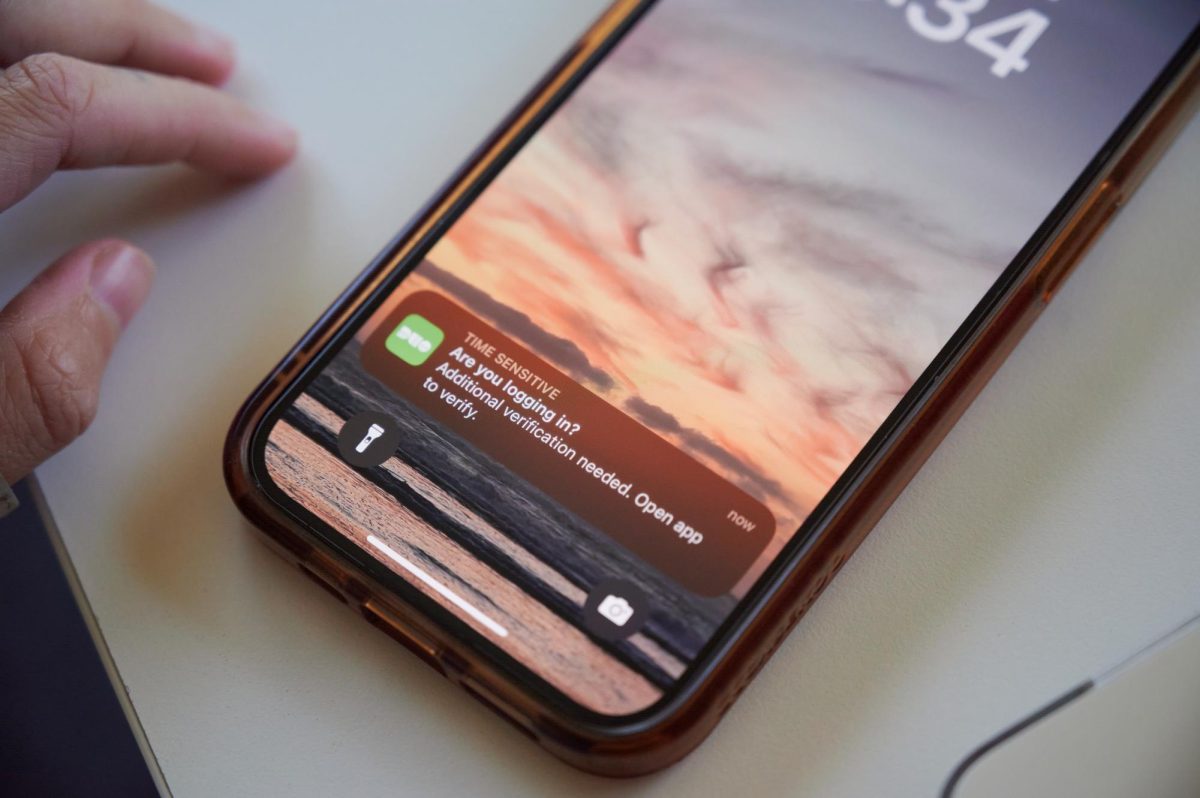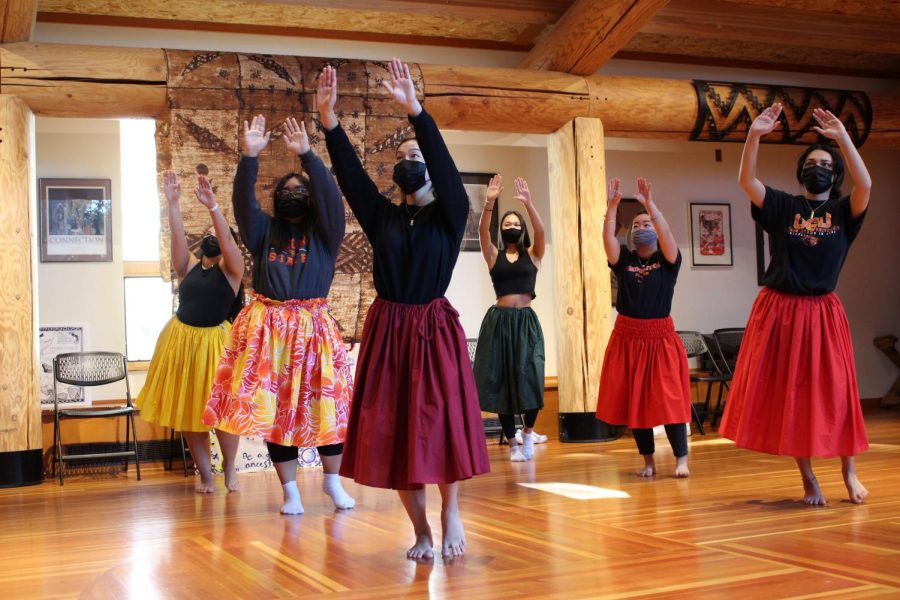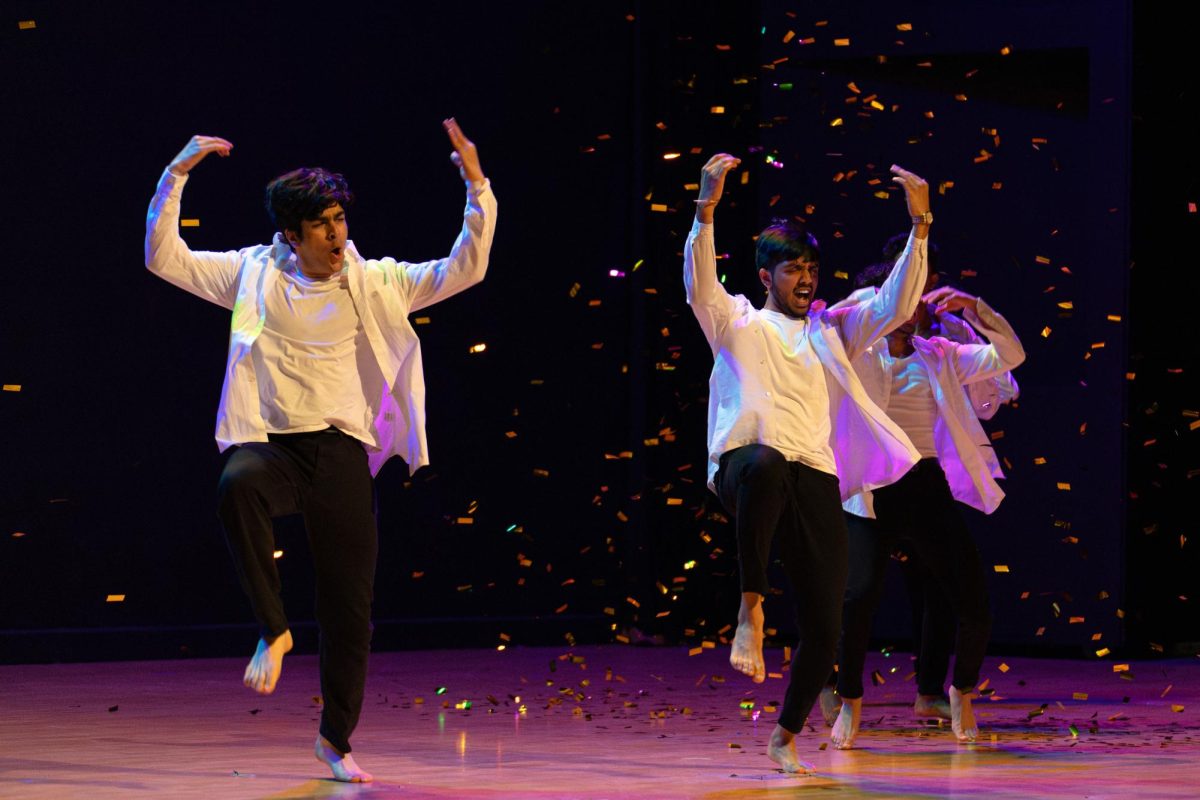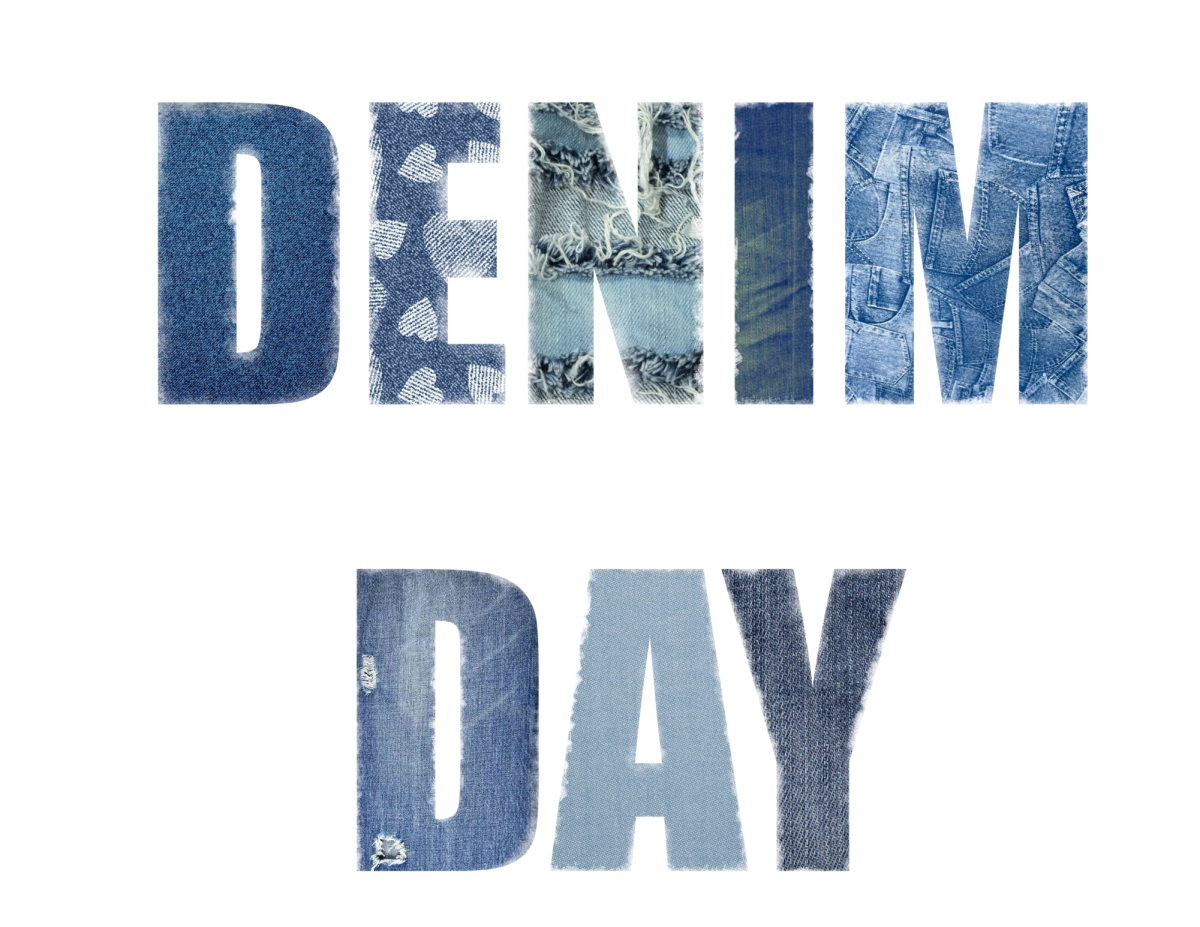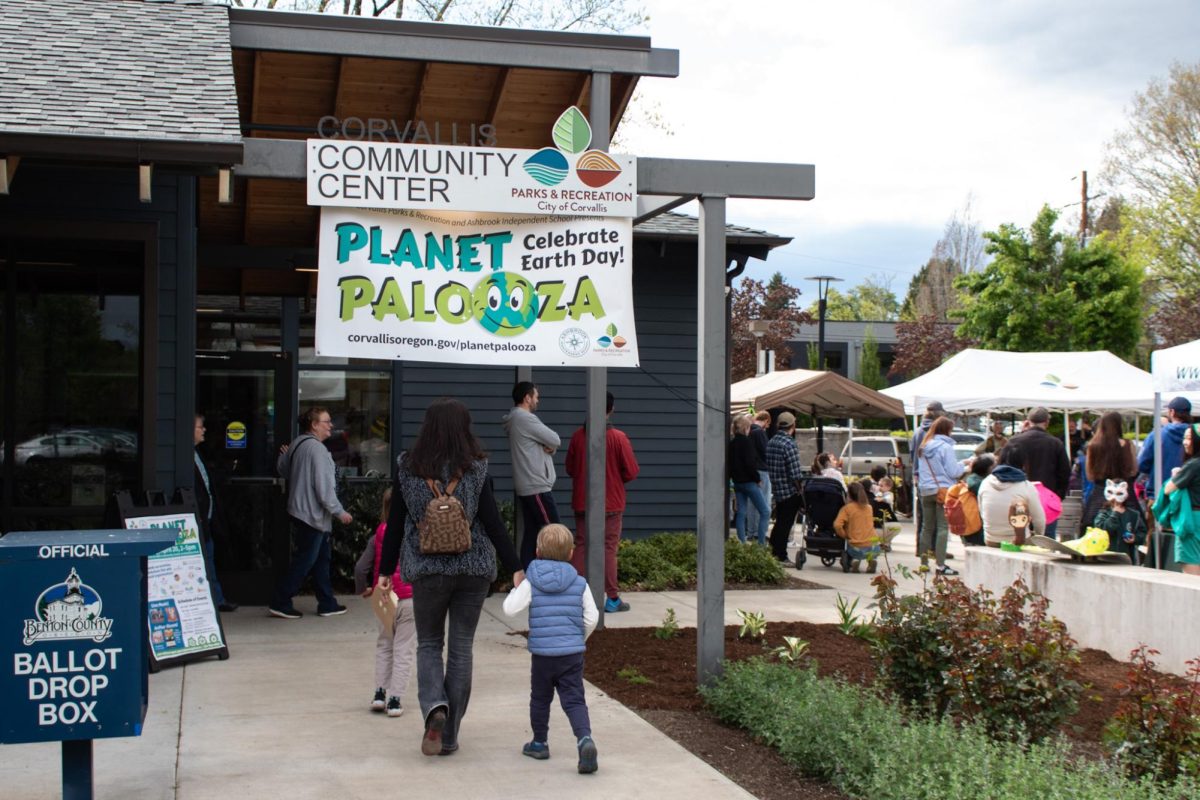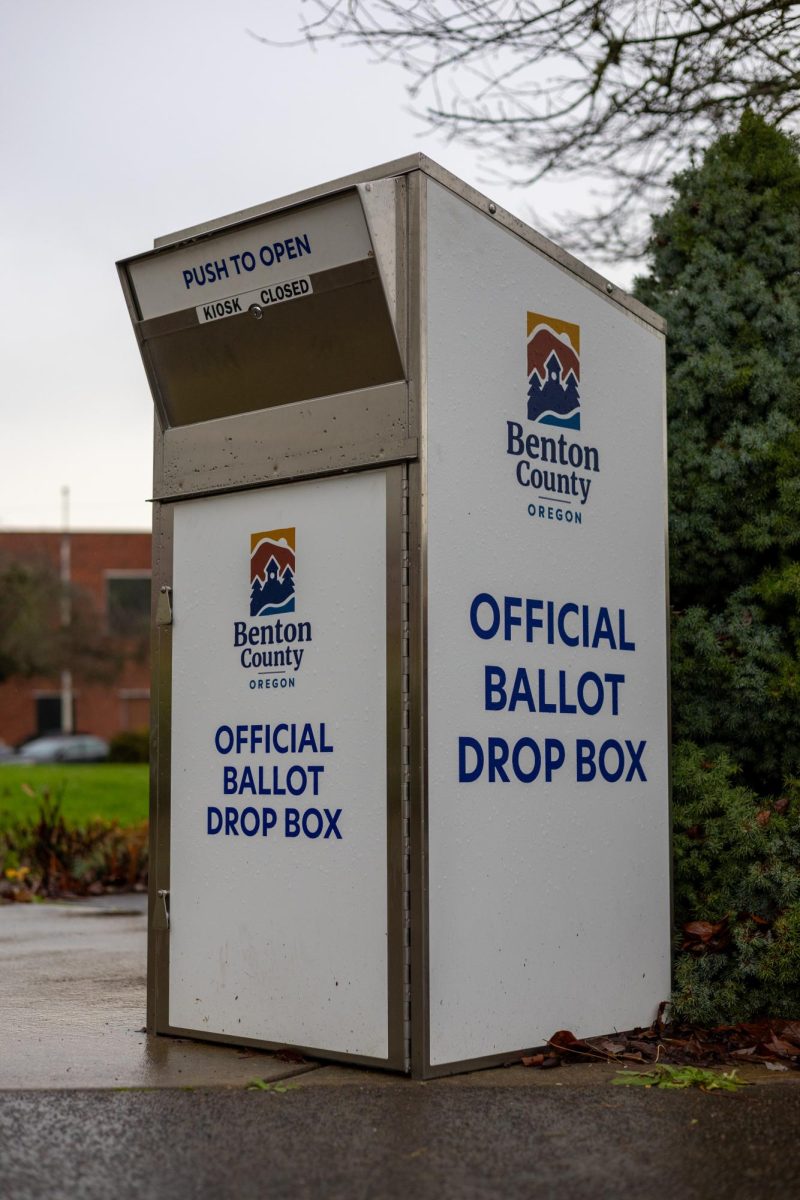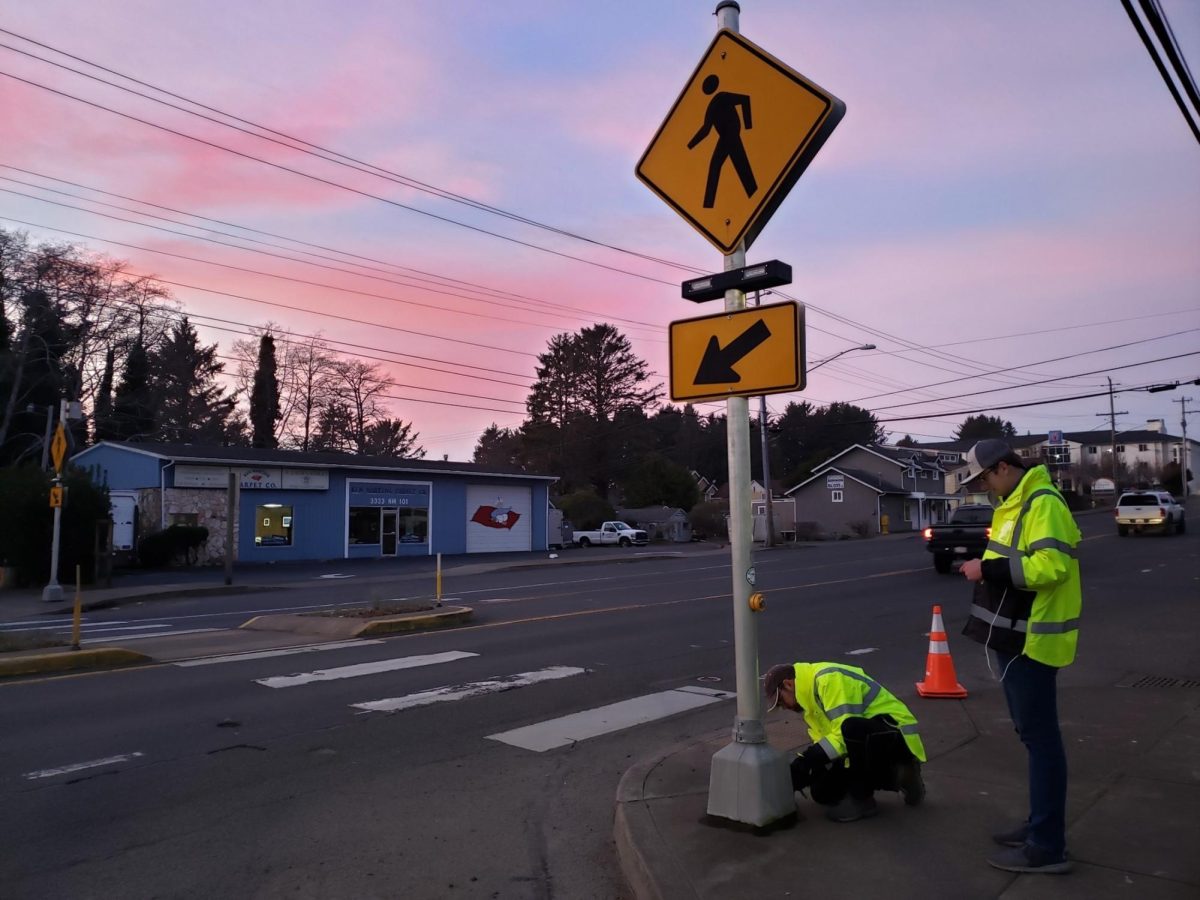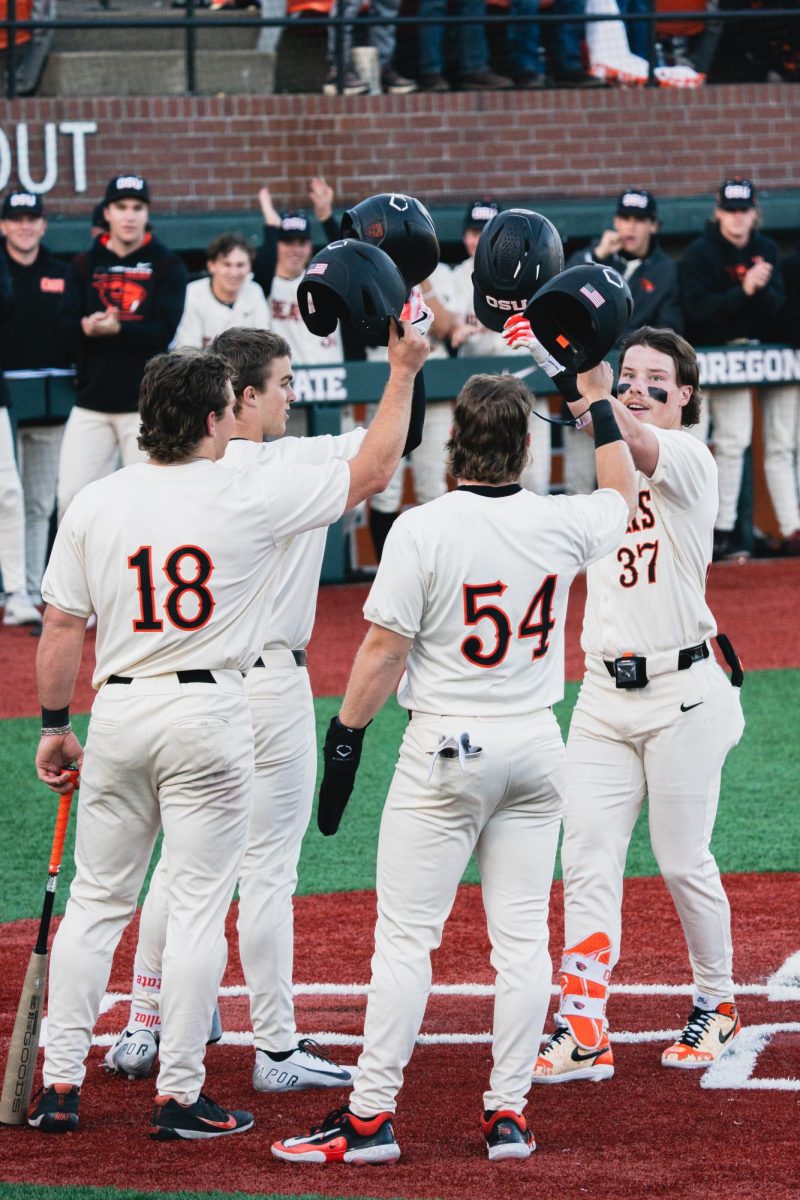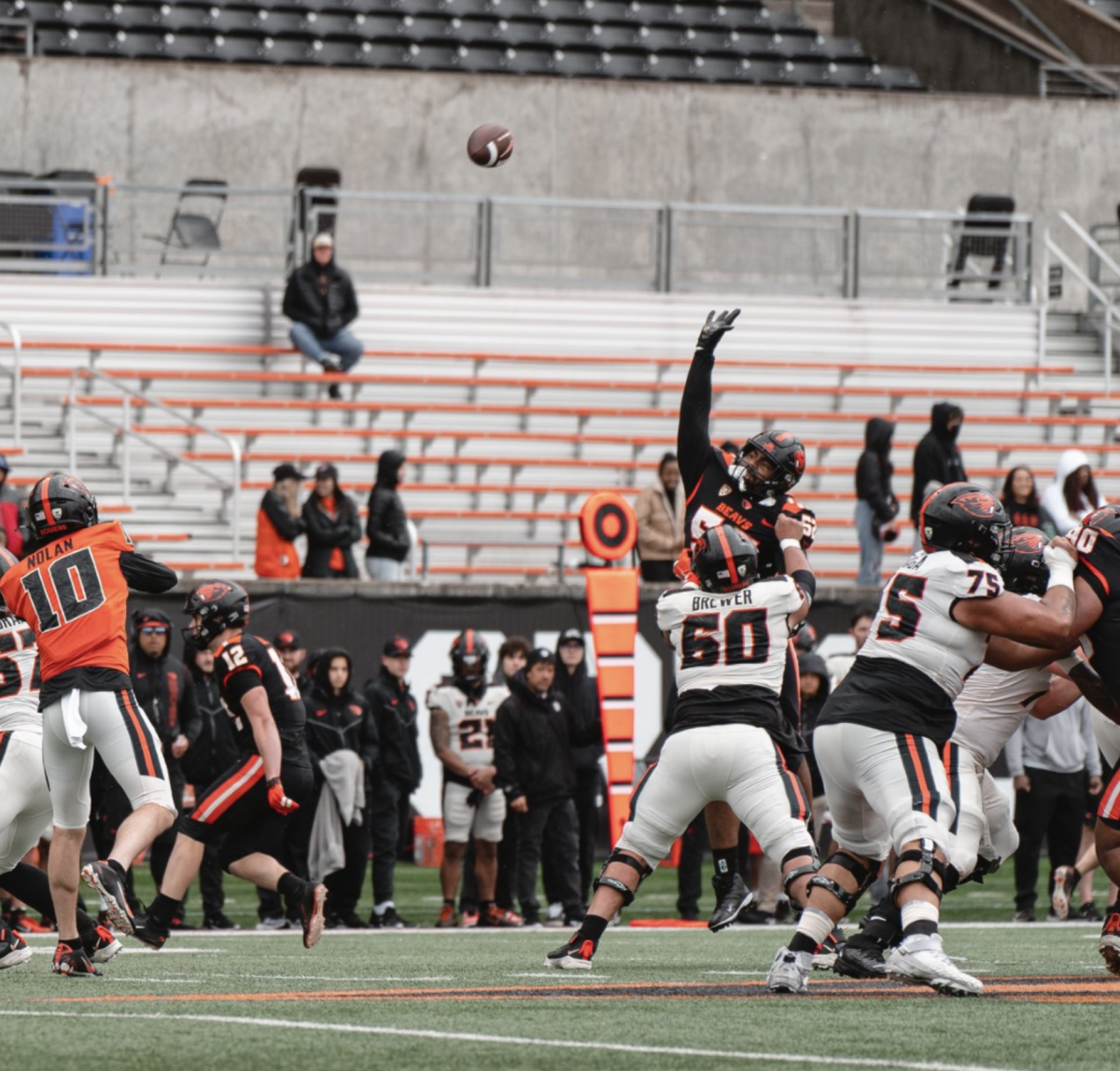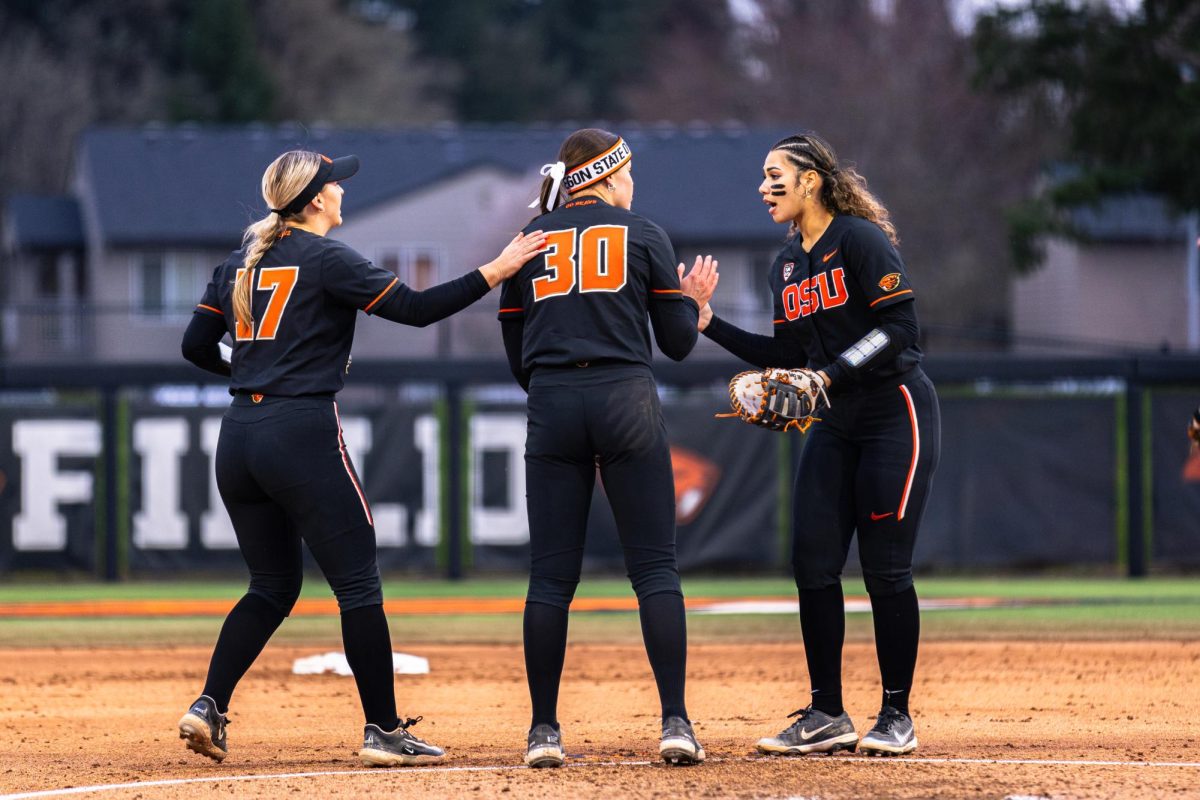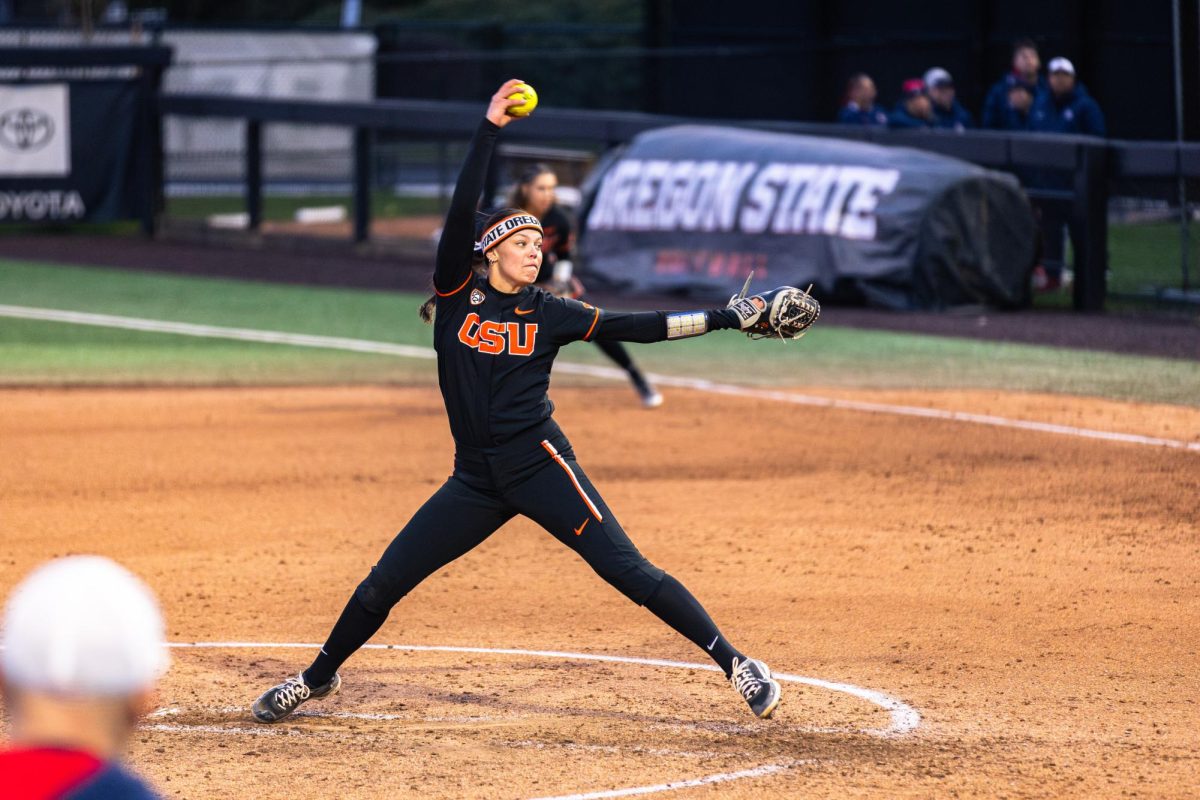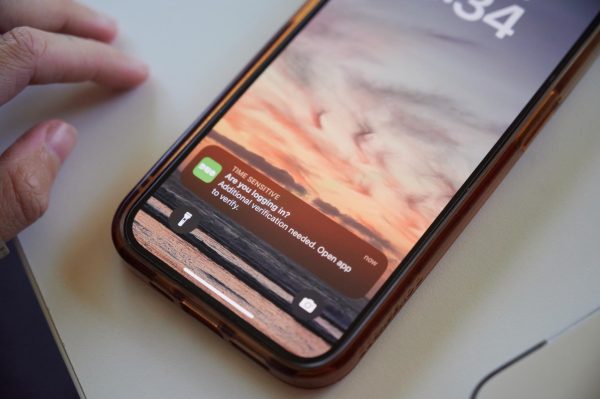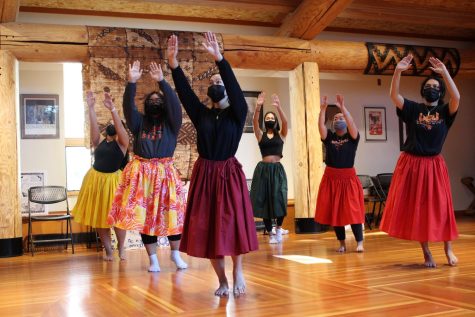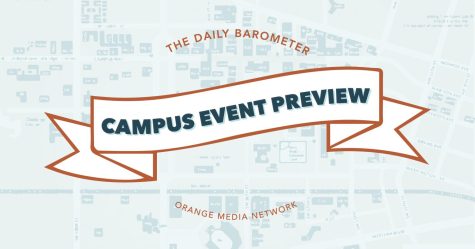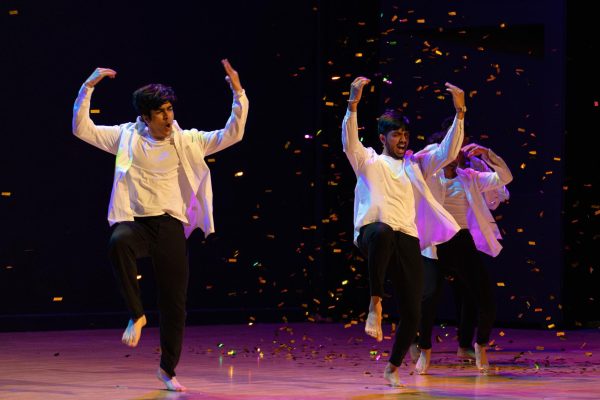President Ed Ray interview regarding Oregon State remaining a sanctuary campus

November 28, 2016
Orange Media Network interviewed President Ed Ray regarding his declaration of OSU as a sanctuary university. Watch the complete interview and follow along with the transcript.
Has OSU always been a sanctuary university?
This all has come up as a consequence of the election, which it’s hard to recall is two weeks ago. It all has come up in advance of the inauguration of the president-elect, which won’t be for another eight weeks. There’s a lot of speculation about what just happened, what’s about to happen, how do we deal with it. On the very serious side of it all, there’s a lot of students, and it affects staff and faculty as well, who are very apprehensive. The president-elect has made some very inappropriate statements during the course of the campaign. Campaigns are campaigns, but you’re supposed to say what you mean and mean what you say. I think that’s the way most people try to live their lives.
So people take the president-elect at his word when he talks about things like having some kind of registry for muslims, and rounding up undocumented students on campuses. There’s just tremendous apprehension. I had a meeting about two days ago, on Monday, we had a town hall meeting. There were a small amount of students there, but one young lady spoke about the climate, and not just that there are people who are personally concerned about their situations or maybe their family’s situations, and that there seem to be a lot of students who are ‘I’m okay, you’re okay. It doesn’t affect me, so I don’t care’. We do have to remember that there was an election, and they do have consequences, and there are a lot of people who are very happy about the fact that Donald Trump has been elected President of the United States. Part of what we try to do is just give people a sense of what the facts are, and what we do and don’t control, and hopefully that gives them a certain level of comfort about what might be coming.
The state itself, in the process of trying to get answers about what it means to be a sanctuary university or a sanctuary state, when I had a little visitation from students, staff and faculty last week, they said we want you to declare that we are a sanctuary university and I said, ‘I’m there. What does it mean?’ That’s part of what we’re trying to figure out. It turns out that we ares in fact a sanctuary state, and by virtue of that we are a sanctuary university, whether I would have declared it or not.
What is means in effect is there is information that we always provide to the federal government in connection with student financial aid, or other sorts of things. What is means to say we are a sanctuary university in a sanctuary state, is we have no role in accommodating the enforcement of immigration background checks, or anything of that sort. There are places, such as federal aid, where for federal reporting purposes we have to provide information. What we made very clear was we have no intention of doing anything that we’re not compelled to do, either by warrants or court orders, to help with the enforcement of immigration background checks. We are here first and foremost to protect and students. Staff are actually required to demonstrate that they have the appropriate visas, or they are U.S. citizens for employment. So we are really talking about students and students’ families, although staff and faculty could have family members that they are undocumented that they are very worried about.
We’ve made it clear that we aren’t going to do anything to make it easy for someone to start poking around and finding out who has legal status and who doesn’t, unless we are compelled by a court order or a warrant.
On the one hand, I think some people have found that reassuring, and other people are telling me, ‘you’re breaking the law, and federal funding is going to be withheld.’ Well we’re not breaking the law. Courts have ruled that we can have that kind of sanctuary status, where we’re not cooperating with the enforcement of immigration actions, and it’s within the law. We’re not breaking the law, but we are doing the maximum amount we can to protect students, and to help them protect your families.
ASOSU has legal council, and that legal counsel is available for all students. If they have questions or concerns about their own status, they can use that service, and the legal advisor to student government also has information about other legal services that could be obtained at reasonable, obtainable prices for others who are not affiliated with the university but have concerns.
At this point, that’s really the most we can do, and we don’t actually know what, if anything, is going to actually happen once the President-elect is in office, whether there will be any sort of attempt to find people and force them to leave the country. That remains to be seen.
Can OSU lose its taxpayer funding as a result of becoming a sanctuary university?
No, this business about losing federal funding is stupid stuff. There is nothing in law that says we have to comply with requests for information about potentially undocumented people, or our federal funds or at risk—that’s not the case, and if someone tried to enforce something along those lines, we’d be in court and there would be a lot of legal support for preventing any such heavy-handed action from taking place. We don’t anticipate that’s something that we really have to be concerned about.
The one thing that is concerning the most on the negative side, I think there are people who are not inappropriately concerned about not wanting their university breaking the law and not enforcing something that they are supposed to be enforcing, and I hope in response to individuals who have asked I’ve been able to clarify some of that, but I’ve gotten a few, not many, really hateful messages from people. There are some very troubled people out there who I think are feeling emboldened by the election results, and I hope that the new administration will take that on directly, and that at some point the president-elect will be very clear about what he does not find acceptable, and that will maybe discourage some of the worst kind of acting out. I’ve heard from students about people riding around in trucks with confederate flags, and yelling things at them and others and all of that stuff. That’s stupid and unacceptable two weeks ago, it’s still stupid and unacceptable now. I think some people feel emboldened by the results of the election, and that’s really unfortunate. Where are can take action we need to, to hold such people accountable. Again, we ultimately want to come together as a country. So there are people on both sides of the equation who voted and we are a democracy, we make the best of the outcomes we get hopefully, and so we need to figure out where there is common ground where we can do some things that will benefit individuals and the country, rather than simply lock horns and have nothing get accomplished.
I think there are people who look at some of the proposals that are out there around infrastructure investment, I think both democrats and republicans have argued in favor of that for years. I always used to tell people this time is unlike any election I’ve ever seen, but I always used to tell people that whoever is elected president of the United States, you want them to be the best president we’ve ever had because it’s our lives their screwing around with. You’re not rooting for whoever is president, regardless of what your politics are, to be a total abysmal failure, because that means they are probably doing a lot of things that are hurting a lot of people who probably can’t protect themselves from bad policy. You’re always hoping that somehow people get smarter, and more balanced in their behavior when they assume the office of the presidency, and we get better rather than worse results than we’ve gotten in the past.
Was the protest on Wednesday the first time you had heard of a sanctuary university?
I told the students when they came last Wednesday that I was for sanctuary, but I didn’t actually know what it meant and I would try to find out. I think in a moment of desperation, I told them that I was pretty sure I was going to see the Governor the next day, because the president’s’ council was meeting in Salem, and she’s really smart and maybe she knows something. So I actually did bring it up with her, that the students made this request that I’m supportive of doing everything we can to give reassurances and protections to students, and what did she know. She told me that the state, obviously people in the administration had been looking at how santuary state has been interpreted.
Apparently we passed a resolution or a statue in 2007, when I presume Governor Kulongoski was in office, probably when the issue of DACA first came up, students who were here illegally being able to go to college and so forth, and Oregon declared itself a sanctuary state, but it never got a lot of attention. There’s been a lot of effort to get some clarity about what did we pass. It’s a little bit like me saying yeah, I’m for it—what did I just agree to? And then I know that the Governor, through some of her leadership with the state, has been in contact with our congressional delegation, trying to get clarity about what could be done at the federal level. For example, this business of you declare you’re a sanctuary state, you’re not going to do anything you’re not compelled to do with respect to immigration, except for warrants and court orders, what does that mean about what the Department of Education could do in respect to financial aid. I think they’re actually working to get as much clarity about that as possible, but my understanding is there’s no basis for the concern, although I understand the concern that we’re going to have our federal funding cut off because of this position. I think many colleges and universities have said what we’ve said, we’re going to do what we can to protect students and their privacy.
Will this change the way the campus runs?
I don’t expect it do. Think about what you just asked. You asked me ‘this’. I don’t know what this is, and I don’t think you do either. Until we have and administration in office, and it tells us what the ‘this’ is that they think they’re going to do that is different than what is happening now, it’s pretty hard to know what we’re going to do that is different than what is happening now. We can at least be clear about what we’re not going to do, and that’s what I was trying to provide with that statement, we’re not lining up to give out information about individuals and their whereabouts and immigration status. We’re not doing anything do deal with the immigration questions, until and unless the courts tell us that we have to do things, perhaps differently moving forward. And even there, I would expect there would be challenges to court decisions if somehow they were to tell us we had to act differently than we have been, or I’ve indicated we intent do act. There would be counter efforts to get the courts to block any implementation of policies that were more invasive and intrusive of people’s rights and right to privacy.
What is the Deferred Action for Childhood Arrivals Program (DACA)?
There were a lot of inflammatory things said during the campaign, but nothing has actually changed, there’s no policy that is being forced that would lead to anything in contradiction of that. That’s what we have to wait and see. Yesterday, apparently the president elect said he’s not going to try to but Hillary Clinton in jail, and that was one of the popular chants, ‘Lock her up’. Things are becoming clearer as we go along, what will be attempted and what won’t be attempted. There will be a harsh dose of reality for the president-elect, as there was for the current president. It’s great to have ideas about what you want to do, and then there’s this thing called congress that gets to appropriate or not appropriate money for things and gets to pass laws. The president-elect is going to be facing a loyal opposition with many different ideas perhaps on a number of fronts, just that President Obama has. The notion that you’re going to announce five things you’re going to do is great, but between here and there is quite a long and sometimes not possible journey; you can’t always get from here to there just because you’ve declared what it is you want to do. We have to see how things play out.
How will you respond to issues that may arise by students and community members who disagree with your decision?
I’m getting fan mail, and I’m trying to explain to people what it means. They think that I should be in jail, we’re not enforcing the law, and how could we be violating federal law, and then I explain that we’re not violating federal law, and we’re doing the utmost to be supportive and protective of our students, and we intend to keep doing that. The declaration is just to the extend that we’re in a very uncertain and troubled time for many people. We want to make sure that among all the noise, we’re absolutely clear that we’re here to be as supportive of students and others as we possibly can.
I’ve gotten some reactions quite negative to that, and a lot positive as well. A lot of people have said thanks, and they just wanted reassurance that that’s where the university would be in support of them. Not hearing anything is not being the same as being supportive, sometimes you’ve got to remind people that you’re going to do everything you can to be helpful to them. They need to hear that, and others draw their own conclusions about what that means. There is no perfect sentence. People look at the same words, and one is reassured, and the other is pretty sure you’re going to go to federal prison, and you’re federal funds are going to be cut off, and how can you be that irresponsible, and everything in between. Most of the response I’ve gotten was, ‘thank you for saying these things and making clear what you could, that helps while we wait to see what actually does or doesn’t happen’.
Do you think this declaration is enough on the part of the administration?
I think it’s all we can do at this point. What we’re doing is certainly making it clear is the university is not going to be engaged in voluntarily giving up information about people around immigration. There is the student legal services option available to students, and that option can also provide information about other lawyers who can be available to assist student families, for example. At this point, until we know more about what it is that we’re dealing with, it’s hard to know what else would be productive. In some sense I worry about message fatigue as well. I’m sure some students hang on my every word, but too missives in a week is probably enough, unless I had some pretty clear signals about wow, this issue is out there, that issue is out there, if you know anything, tell us what you know. You try not to engage in overkill. Hopefully, what’s needed to be said has been said, until or unless the landscape changes, and that certainly isn’t going to change on President Obama’s watch. What actually, if anything is enacted in the term of the new president, we can always err on the side of being protective and supportive of our students, and their right to be here and get their education and realize their potential. That’s always where we’re going to be, and what that requires is going to depend on what the circumstances in March or June, what are the circumstances that we face that we didn’t have back in November.
What can students do on a day to day basis to make campus more inclusive?
I really hope that students will be supportive and understanding of each other. One of the things that I’ve found sad is there are students that are really in distress, they are very fearful. At some level I get it, we all have issues to deal with and we compartmentalize in life, and if you’re not here, not properly documented, or maybe you know someone who is, you’ve never known someone who is, your instinct is always, ‘I’ve got all these things to worry about, this is not about me’. I think part of what our community is experiencing is people who are hurting are not seeing other people step up and be supportive of them. I think what every student can do is if you care about your fellow students, and I would include faculty and staff as well, if you see people hurting it would be nice to have a kind word or a statement of support or an offer to listen to them, just as with a family or friends, people ought to step up and be willing to do that.
I got the sense from one or two of the students who were there Monday afternoon is they’re not seeing that. Part of what makes their distress that much greater is they seem so many students seemingly walking around as though it’s business as usual, and it’s certainly not for them. To the extent people recognize they ought to make a little extra effort to reach out to people who are feeling very worried and very vulnerable.
Some students I have talked to are feeling afraid of the uncertainty of what is to come. Do you have anything to say to these students?
It’s easy to tell people calm down. Until we know what we’re dealing with, you’re burning a lot of psychic and emotional energy, which may prove to be unfounded. You can’t turn emotions on and off. I get it, that there are many students that are very fearful and very in distress. I would say, we are not looking away from what’s being suggested could happen in these areas. We’re going to stay on top of it. If there are meaningful actions we can take, we will do so as quickly as we possibly can, and try to give people assurances that we need to see what is it that we are ultimately dealing with, not what we are afraid we are dealing with.
I understand how that’s very hard, if you feel like you’re the target, it’s very hard to suspend worrying about these things. I don’t think there’s anything to be done about that except for time to play out and for us to see where the new administration takes, or tries to take, new policy and then to what extend. If it’s inappropriate it can be stopped, and what the actions are that can be taken to rebuff effort to round people up. There’s talk of having a registry of Muslims. There’s a lot of nutty stuff out there, and until we are able to confront it, and know what is being proposed, and explored what can be done through the courts and what it means to push back, it’s hard to say what actions need to be taken and can be taken.
Is there anything else you would like to add?
We are a community, and we get tested all the time. We’ve had situations in the past, whether it was the blackface incident, or the speak out last year, which was a learning opportunity for many of us. We need to constantly be willing to come back, to have difficult conversations and dialogue, try to demonstrate that at the end of the day we care about each other and we support each other. Things that affect us different differentially because maybe it affects you but not be, doesn’t mean I don’t have a stake in trying to be supportive of you in any way and whatever way I can. I hope the community can come together. This is the time of year you talk about holidays and new beginnings and celebrations, and the best way to demonstrate one has the spirit of the holiday is through how you treat other people. If you’re callous, if you’re interested, if you assume I’m okay, you’re okay, and you never really connect with other people, that isn’t what we think of of having the holiday spirit. I hope in this time of uncertainty people will make an extra effort to be supportive of each other—take the time to listen if that’s what needed, give someone a hug who needs a hug, let them know that you do understand what their concerns are, and you want to be as supportive as you can.

